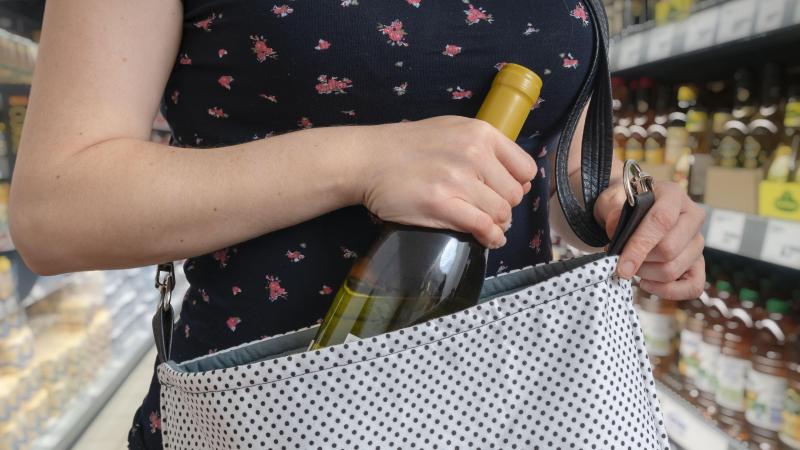Facebook told to crack down on sellers amid shoplifting epidemic
The policing chief for retail crime has called on Meta to force users of its Facebook Marketplace platform to verify their identity and location to thwart an epidemic of shoplifting.
Chief Superintendent Alex Goss, head of retail crime at the National Police Chiefs’ Council (NPCC), said that Meta and other online platforms needed to do more to “think about criminality” when designing their platforms.
Figures out today show that police forces are attending almost twice as many shoplifting cases reported to them since they signed up to a new commitment in October to prioritise it.
The retail crime action plan set out a commitment to tackling shoplifting and required forces to go to the shop where a suspect was being detained by staff or where threatening behaviour had been reported.
Before October the police went to fewer than 40 per cent of shoplifting calls. However, since the action plan was agreed, this has risen to 76 per cent, according to figures collected by the NPCC. The rate for calls related to violence was 60 per cent.

Katy Bourne, head of retail crime for the Association of Police of Crime Commissioners, said that it was “a wee bit early for police to be complacent.
“At the end of the day, pursuing leads of inquiry should be what they should be doing anyway, regardless of the type of crime. There’s a lot of work still to be done. Some of the police forces didn’t even respond [to the NPCC’s request for data on attendant rates] and some of their figures weren’t anywhere near what they claimed they were.”
She added: “It’s too early for the police to sit back on their laurels and say they’re doing brilliantly. This needs a much longer-term approach and a much more consistent approach, neither of which they have at the moment. It’s good, moving in the right direction but it’s a shame it got to the situation in the first place.”
Facebook Marketplace has been blamed for helping to facilitate the record rates of shoplifting in the UK, with 402,482 cases reported to the police in the year to September 2023 — a third more than the previous year.
It is one of very few online shops that does not require sellers to verify their identity or location and police chiefs have said that the platform is facilitating organised crime gangs behind the surge in shoplifting because it is easily accessible to sell goods.

Users only require a Facebook profile to start selling goods, with no requirement to prove who they are, which police believe is being exploited by people creating accounts under false names in order to protect themselves from prosecution.
Users do not need to set their home location because the marketplace is designed for users to arrange a location themselves in order to exchange goods and money. They simply state the location where they want to sell the items.
Individuals are sent by organised crime gangs to steal higher value items from supermarkets such as steaks, bottles of alcohol, cosmetics and toiletries en masse that are then sold on to pubs, corner shops, car boot sales and at marketplaces offline and online such as Facebook Marketplace.
A Meta spokesman insisted that it has processes in place to remove stolen goods from Facebook Marketplace when they are reported.
However, Goss said that Meta needs to go further by creating a barrier and deterrent for people selling stolen goods in the first place. “Anything where you don’t have to verify your identity will be a risk to criminality. Where you don’t have to verify your identification is always going to be open to exploitation. If we can get to that position with Meta [to enforce verification of ID] that would be really good.
“There’s always more to do with online platforms because they’re so easy to use, to create false accounts and Meta is just one of them. Anything that helps in terms of additional security to identify people is always going to be helpful.”
He urged Meta and other social media companies to work more closely with the police and law enforcement agencies to tackle shoplifting. “I know it’s a huge challenge, and social media is also a fantastic tool for lots of things. But it gets used by criminals so I would certainly encourage firms to think about criminality when they’re creating databases and working with police and enforcement agencies.”
Bourne also called on Meta to introduce mandatory verification of identity before users are allowed to sell goods.

She said: “I think we do need to look at some of the requirements for those sellers online and some of the verification could do with tightening up.”
A Meta spokesman said: “Stolen goods are banned on Marketplace and we remove listings when we see them. We also have designated teams that work with law enforcement and we’d encourage anyone who thinks they’ve seen a stolen item to report the listing on our platforms and contact the police.”
Chris Philp, the crime and policing minister, said: “Shoplifting has a detrimental impact not only businesses and high streets, but retail workers themselves who can be subject to unacceptable intimidation and violence.
“We will not tolerate it, which is why we launched the retail crime action plan and I am very encouraged by the progress already being made by police in delivering against their commitments.
“I won’t be complacent however, we must take a zero-tolerance approach to shoplifting and will continue working with the police and retailers to bear down on this crime, preventing it from happening, and making sure perpetrators face justice when it does occur.”






